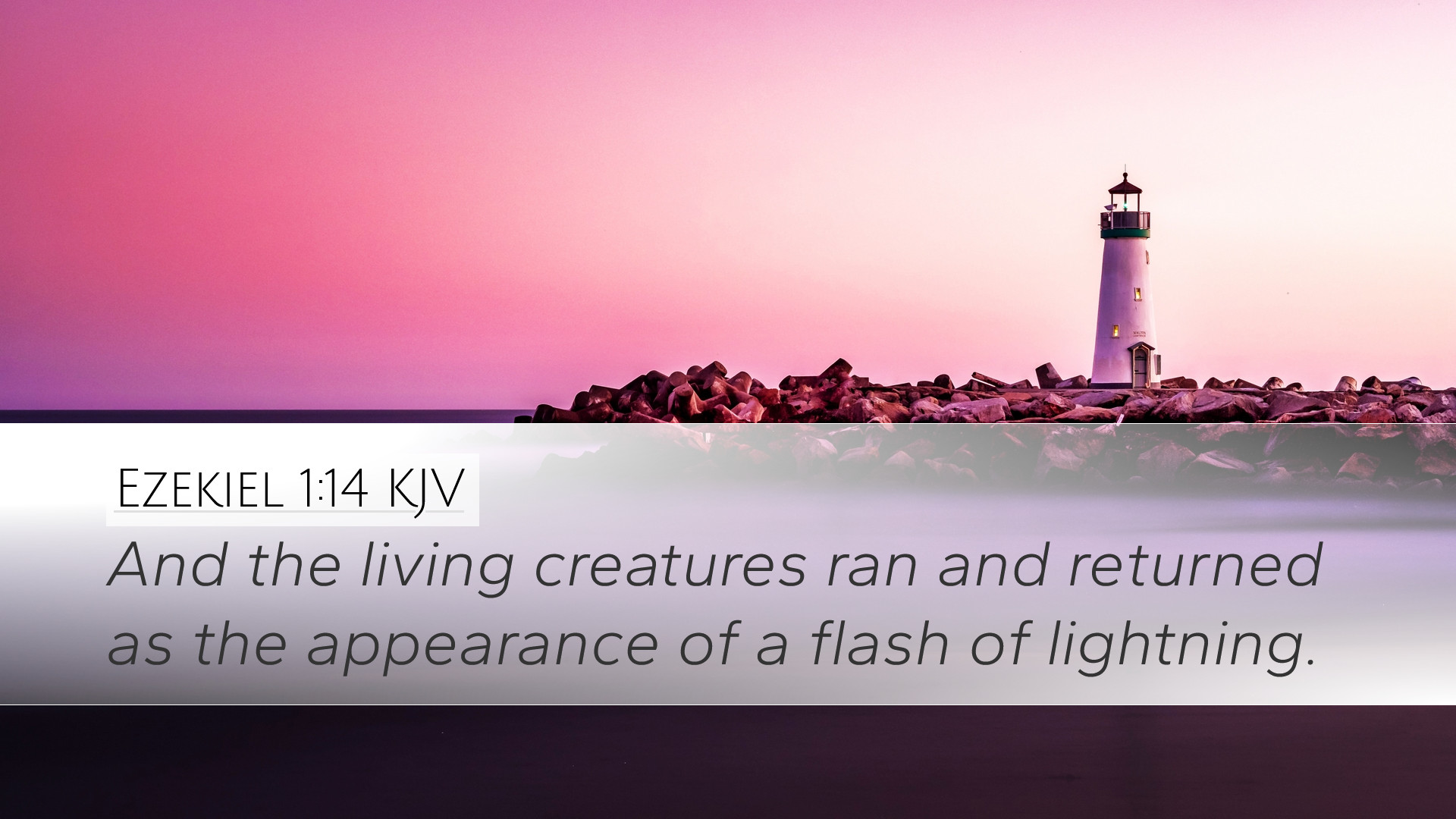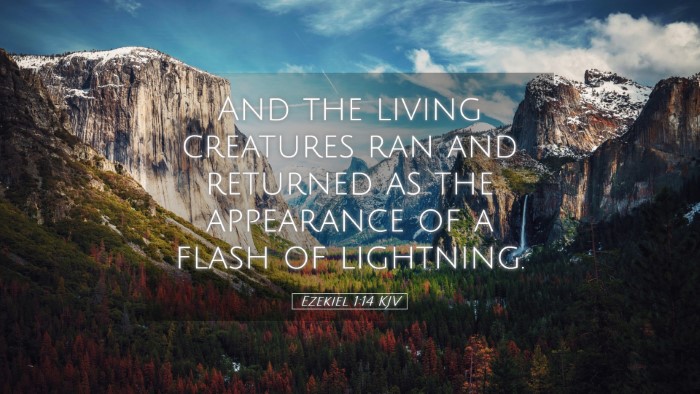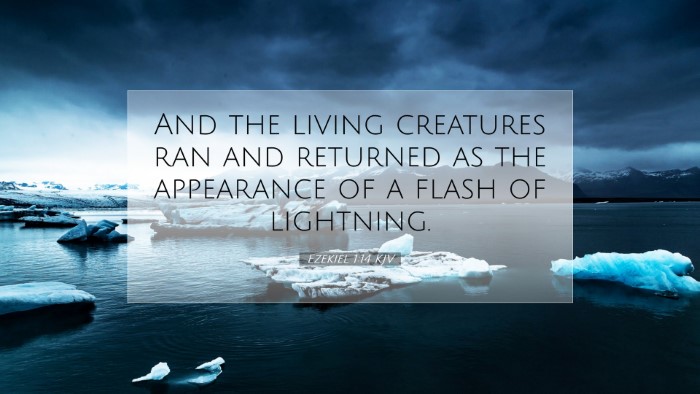Ezekiel 1:14 Commentary
Bible Verse: "And the living creatures ran and returned as the appearance of a flash of lightning." (Ezekiel 1:14)
Introduction
The vision described in Ezekiel 1 is profound and multifaceted. The phrase "ran and returned as the appearance of a flash of lightning" encapsulates the swiftness and divine nature of God's revelation to His prophet. This commentary synthesizes insights from public domain commentaries to better understand the significance of this verse within the broader context of Ezekiel's prophetic mission.
Contextual Background
Ezekiel's visions occur during the Babylonian exile, a critical period for Israel. The prophetic call of Ezekiel in this chapter marks the beginning of a new phase in Israel's spiritual trajectory. This chapter serves as an introduction not only to Ezekiel's prophetic career but also to the themes of divine presence, judgment, and restoration that permeate the text.
The Nature of the Living Creatures
The "living creatures" mentioned in the verse refer to the cherubic beings described earlier in Ezekiel's vision. They are characterized by their speed, agility, and the radiant appearance akin to lightning. According to Matthew Henry, these beings symbolize God’s readiness to execute His will swiftly and decisively among His people. They function as agents of God's purpose, highlighting both His transcendence and immanence.
Symbolism of Speed
Albert Barnes emphasizes the significance of speed in this passage. The "running" and "returning" signifies the quickness with which God's purposes are carried out. It reflects not only the intensity of divine action but also the urgency of God's message to His people. This speed is reminiscent of the swiftness of judgment, aligning with the broader themes of judgment interspersed throughout Ezekiel’s prophecies.
The Appearance of Lightning
The comparison to "the appearance of a flash of lightning" serves to convey the brilliance and supernatural intensity of these creatures. Adam Clarke points out that lightning is often associated with divine presence and power throughout Scripture. This imagery elevates the vision to a spiritual plane that reveals God’s glory and might. It reminds the reader of God’s sovereign authority to act in the world swiftly and effectively, whether in judgment or mercy.
Theological Implications
The portrayal of the living creatures has several theological implications. Firstly, it reinforces the idea of God's active involvement in human history. Despite Israel’s exile, God remains present and sovereign, orchestrating events according to His divine will. Secondly, the imagery evokes a sense of awe and reverence, calling the readers to recognize the holiness of God and the seriousness of His message.
Application for Contemporary Readers
For pastors, students, theologians, and Bible scholars, this verse carries significant applications:
- God's Sovereignty: A reminder that God is actively involved in our lives, orchestrating events and movements according to His divine purpose.
- The Urgency of Divine Call: Just as the creatures were quick to respond to God's commands, believers are called to swiftly obey the actions of the Lord in their lives.
- Living in Awe: The imagery prompts a sense of awe in encountering God's presence, encouraging a humble posture in worship and obedience.
- Understanding God's Judgment and Mercy: As God acts swiftly, we are reminded that His judgments can come unexpectedly; hence, we must be vigilant in our spiritual lives.
Conclusion
Ezekiel 1:14 serves as a powerful reminder of God’s active presence in the world. Through the swiftness of the living creatures and their comparison to lightning, the text unveils profound truths about God’s sovereignty, holiness, and the urgency of divine communication. For those who study this passage, it becomes imperative to reflect on how the divine interacts with humanity, drawing us into a deeper relationship with the Almighty and challenging us to live as responsive agents of His will in the world today.


